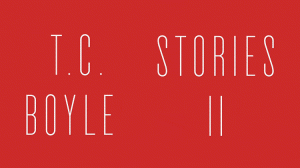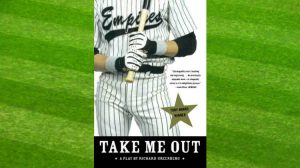Echo Bay: Poems by Jennifer Battisti / Tolsun Books / 9781948800013 / 2018 / paperback; 42 pp.

Jennifer Battisti’s chapbook of poems, Echo Bay, has its roots in the sand and rock of Las Vegas. Battisti studied creative writing at the College of Southern Nevada, currently works with the Las Vegas Poets Organization, and has published with several area journals and magazines such as Desert Companion, Red Rock Review, Helen: A Literary Magazine, and 300 Days of Summer. In her poem “Off Duty Elvis,” which appears midway through the book, Battisti paints a familiar portrait of Las Vegas, opening with: “Early morning dust and neon/made fragile by the sun…The Vegas airport bursts/ into patterned blooms of fuchsia, canary;/a seamless swirling hypnosis pulling me/towards the shuttle.” Later in the poem, when “the bloated seasoned Elvis” comes into view, the speaker watches him “mowing down a Croissan’wich…having it his way,” the croissant flaking “crumb by crumb onto the table/like single roses or undies from vulgar women.”
The description of Las Vegas as a kitschy place—almost trance-like in its display of bright colors—with a sleazy underbelly and a whole cast of “middle age charade[s]” is not new information for those who have heard of Vegas and especially for those who have been there. But what is unique about Echo Bay is that the above descriptions, which involve a sympathetic character in a disorienting environment, could apply generally to life itself—whether that involves the “firsts” of adolescence, the ghosts of parents’ mistakes, the dissolution of relationships, or the birth of children. Just like how, in Vegas, “slot machines lurch like bullies/waiting to steal lunch money/and double knotted dreams,” life kicks us around sometimes to teach us things, no matter where we live, what we have been through, and which blessings we count. This idea, this resilience, which blooms like a cactus flower after rain, is what will make readers return to Echo Bay after the first reading.
Echo Bay, released in April 2018 by Arizona’s Tolsun Books, transports readers through three distinct periods in the poet’s life: her upbringing in Vegas, her journey into motherhood, and the end of her marriage. Each poem, just like each life-stage, is aware of what came beforehand. “Tables Turned” depicts historic downtown Vegas, where “the showgirls sunbathed /on rooftops like a dozen golden swans—/their frothy feathered tails floating on dewy stages twice a night” before losing popularity to Cirque du Soleil and nightclubs along The Strip. A “studio apartment off N. 11th” was where her family first lived when “the city was still naked in 77.” Now that the building, her “family’s first dream,” has changed with time, newer businesses like “11th St. Records [keep] walls of our stored memories…tables turned/ I can go back.” This poem leaves readers with a feeling of nostalgia for that which is not permanent and also hope for what comes next.
Similarly, “Off Boulder Highway” is apt at grounding the reader in both place and time. Battisti takes readers back to rebellious adolescence and budding sexuality, to when “hose water stung young lips,/ a hot plastic surge into our mouths” followed by “heavy swallows off a 40 oz,” “tanning on the front lawn in chairs/ that opened like love notes slipped in lockers,” and making out “until we could no longer remember our address” atop Frenchman’s mountain—though not necessarily in that order. Battisti remembers looking “down on the city, the strip, a line/I’d snort up my nose for a decade straight.” Details like “We’d circle the same zip code like chained dogs,/ get 86’d from Nevada Palace/ just to get our polaroid on the casino wall” remind readers that they are moving through time and Vegas history with a local’s lens.
Just as her Las Vegas-based poems offer a wide range of emotions, her poems about love—which are also largely place-based—are both sharp and tender. “St. Augustine Beach” tells the story of her parents’ meeting in Florida and their eventual migration to Las Vegas. It also tells of their relationship, how the “tide opened” her father and how her mother became “carried away from her own soul.” “Valley of Fire” is set in the red rocks of Valley of Fire State Park just outside of Vegas on a “road slick with sun.” It juxtaposes the speaker’s tumultuous relationship— “my husband’s face growing hard,/ already eroding into my seat where I sit /stung by a dozen hysterical bees”—against her parents’ partnership. A couple lines down, the speaker realizes: “my mother, an apparition, is buckled in beside me/in the passenger seat of my life.” In a similar vein, one rich with conflict, “Lee Canyon, New Year’s Day” shadows the speaker as she and her husband and daughter embark on a trip to the Spring Mountains, where they “do not have to navigate our lives” for a moment, and they can forget that soon “we will leave,/ this marriage we made/ like rows of orphaned snowmen we count/on our way down the mountain.” The grief in these reflective poems stings and stuns like winter itself. Meanwhile, “The First Week” explores “the deep pull of motherhood” in the maternity wing of a hospital. Images of both springtime and the post-partem body give the piece a gentler tone, though it is not without its critique of the passage of time.
The final poem, “When No One is Looking,” brings the audience back to Vegas—this time with a certain element of pride. For Battisti, Las Vegans, most of whom rarely visit The Strip, should be grateful because while tourists waste money on the famous boulevard, “being transported, up escalator/moving walkway, monorail, roulette…” Vegas Valley residents “only wager on the desert—on cacti-blooms, unhinged moonflowers/bursting at midnight.” Again, the poet returns to nature, to the desert landscape, in order to separate what is real from what is fantasy.
All in all, Echo Bay is an incredible debut, and it surely will be enjoyed by poetry lovers and travelers alike. It is also for everyone whom partied as a teen, felt scared to death as a new parent, or left a marriage after a lot of hard work. Most importantly, Echo Bay is for anyone who has ever hated on Vegas or avoided visiting due to personal judgments. After all, as Battisti says in the cheeky “On Wondering What the Pig-Masked Men Were After the Night The Bellagio Rolex Store Was Nearly Burglarized”: “These days, if you want to find Vegas,/you’ll have to look closely…You’ll have to teeter on edges, like big horn sheep…like an aging showgirl, holding her breath,/ waiting for the next quick change.” Readers have Battisti to thank for giving them a glimpse of the real Vegas, the grit under the glitz.





Leave a Reply